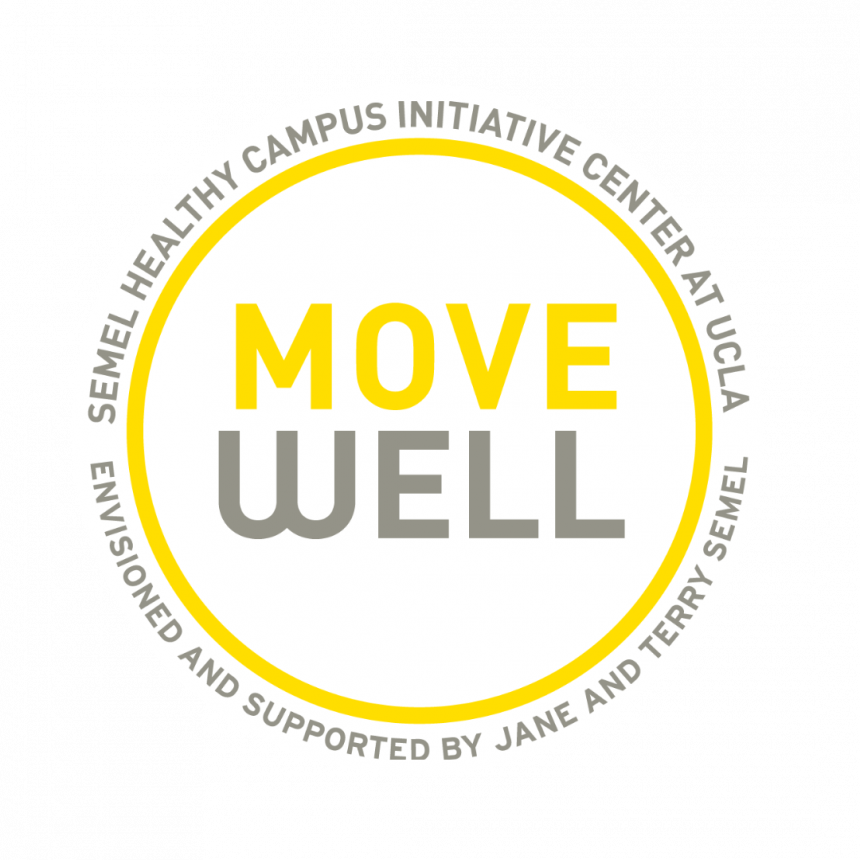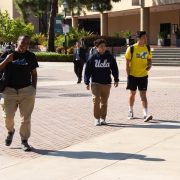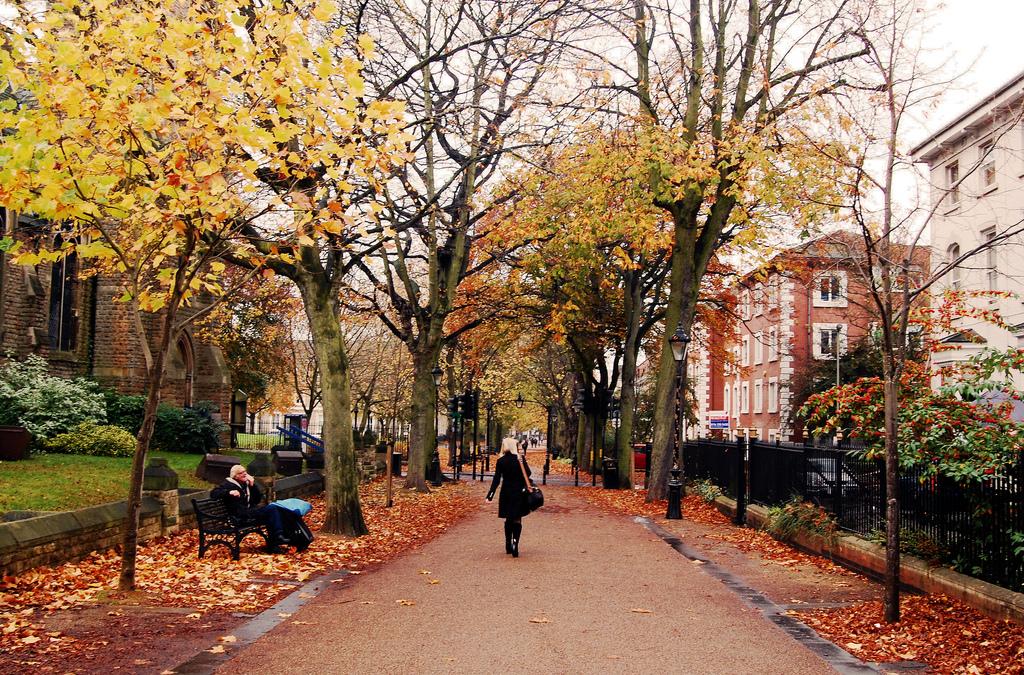Bruins Step To It Part 1: Scoot Over, Let’s Walk!
People often underestimate the power of a simple walk. We not only walk to get to where we want to go, we walk to clear our heads, get exercise, and enjoy the scenery. This blog is part 1 of Bruins Step To It, a three part blog series on walking. Part 2 will explore some beautiful walking paths you may not have noticed right in your UCLA backyard. Stay tuned!
Uber. Lyft. Lyft Scooters. Bird. Lime. Jump. Spin. Wheels.
Bruins now have more and more options of traveling around campus on vehicles small and large. Dock-less electric scooters started popping up around campus in Fall of 2017 and have dramatically shifted campus transportation. Even Razor, the company that manufactures traditional kick-scooters, now has a fleet of EScooters available for minute-to-minute rental via an app. Injuries from crashing or falling off EScooters have led to a significant increase in student emergency room visits. UCLA’s partnership with Lyft and the cultural popularity of Uber results in 11,000 carshare rides from one part of campus to another each week. Though rideshare companies fund initiatives to offset the carbon impact of their cars, Westwood is directly polluted with emissions from these trips. For these short distances, many students turn to vehicles instead of walking and, in doing so, miss out on some of the positive impacts of the mind-body connection, experienced through walking.
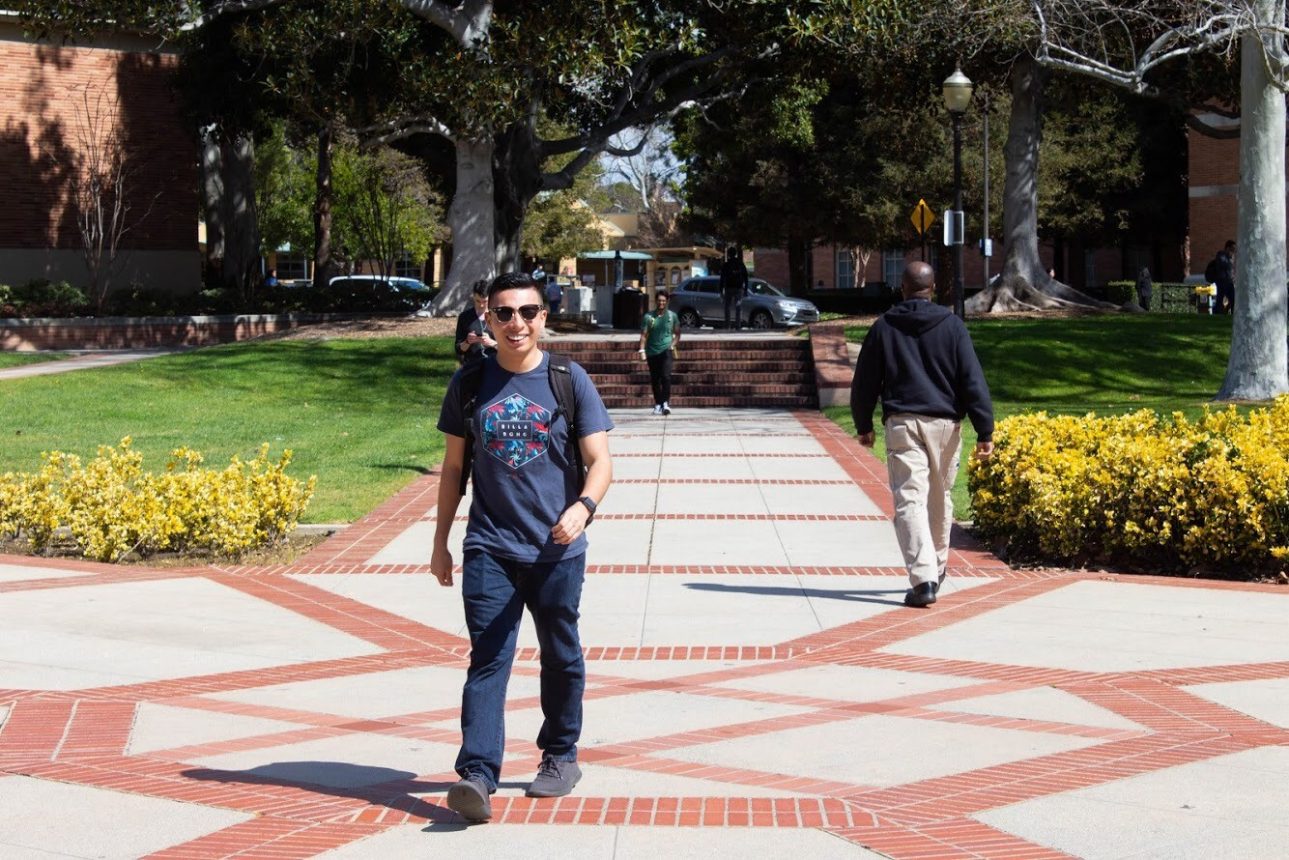
Here are 5 ways walking instead of scooting can benefit your productivity:
1. Refresh your study session:
Walking is correlated with an improvement in work attitude! 30 minutes of walking during the day is correlated with an overall significant uptick in mood and outlook pertaining to work! Even a 5 minute lap around Powell or Young Library will drive your study session towards productiveness!
2. Writer’s block? Go around the block!
Walking was shown to increase creative divergent thinking during the walk and continued creative output when seated. Walking outdoors produced greater creativity compared to walking indoors or sitting outdoors. Take a stroll to a different study spot when stuck writing an essay!
3. Enter a meditative state:
The rhythmic motion of walking can put the walker into a meditative state. Create a mobile, personal meditation space by being present and mindful of the sights, sounds, and smells embedded within our beautiful green campus. A study on university student cognitive task performance found that mindfulness practice increased concentration, reaction time, and working memory.
4. Shake off that fatigue:
Regular low-intensity leisurely walking has been shown to reduce fatigue symptoms by 65 percent in individuals and increased energy levels by 20 percent. A daily 40 minute walk from one side of Westwood to another and back is the perfect walk for increasing daily energy for those who don’t already do so!
5. Improve memory and attention:
Walking outside, even on gloomy or frigid days, benefits memory and attention. There is a correlation between walking in nature and greater memory and attention performance as compared to urban landscapes, so consider hiking to class along green paths rather than along the shortest route!
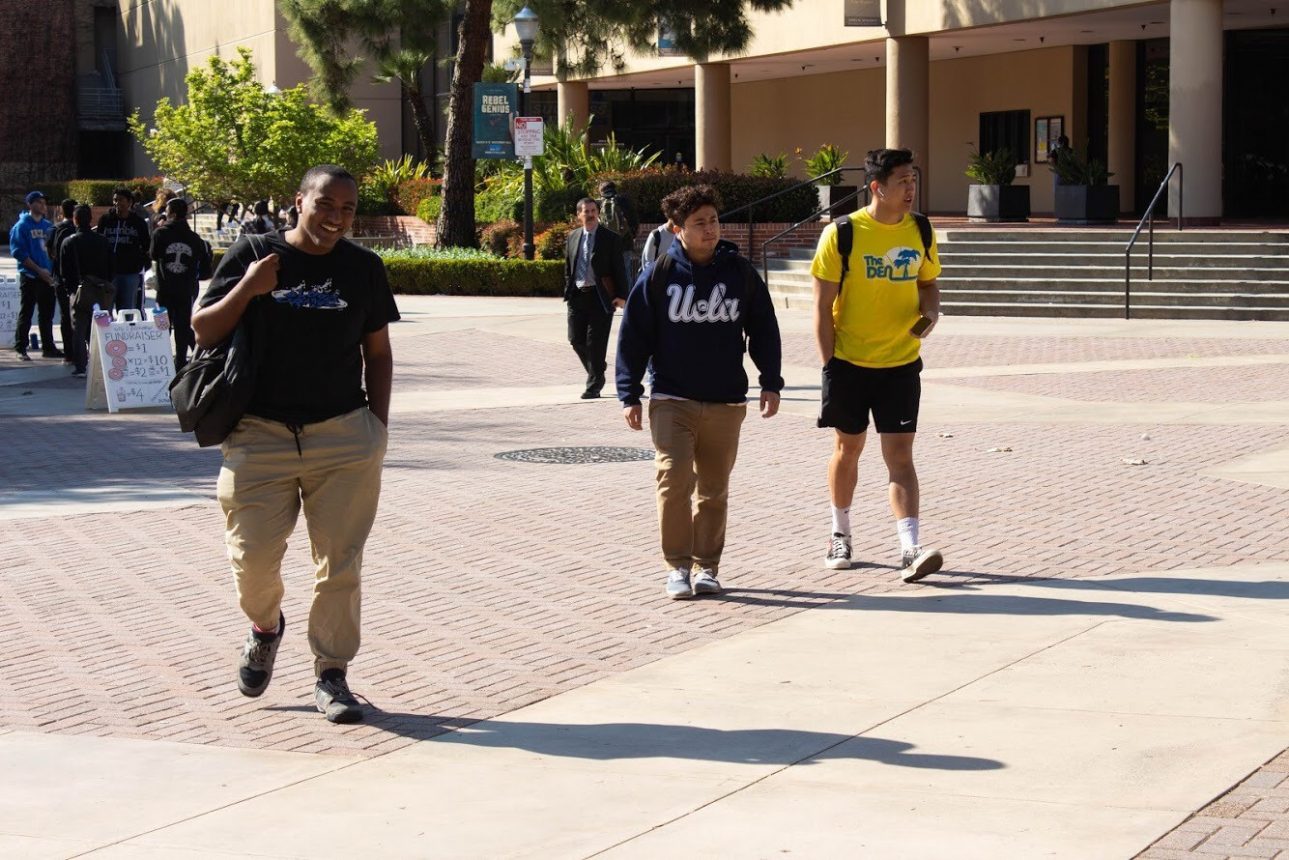
The mind-body connection is dramatically illustrated in hippotherapy (i.e occupational, physical, or speech therapy on horseback). For some young children with delayed walking, speech is also delayed. Hippotherapy can be used to work non-leg muscles associated with walking and aid in helping develop speech! The forward/back, lateral, up/down movement of a horse is the only known method of replicating the sensation of walking in the torso without using legs. The three dimensional movement compels the rider to use their core muscles to adjust to the changing center of gravity with each step. Torsal organs settle in the body, allowing the diaphragm to lower more easily, increasing respiratory ability. Abdominal muscle stimulation allows for neural signaling the promotes the development of facial muscles and the jaw.
Stay tuned for a blog on some routes and commutes to and around campus that can add a little more green into your life!
Karan Ishii is an undergraduate student at UCLA majoring in Biology. She is a blogger for MoveWell of the UCLA Healthy Campus Initiative, as well as the Chief of Staff of the Student Wellness Commission and an intern at the Counseling and Psychological Services. She is passionate about dogs, curry, and skiing!
